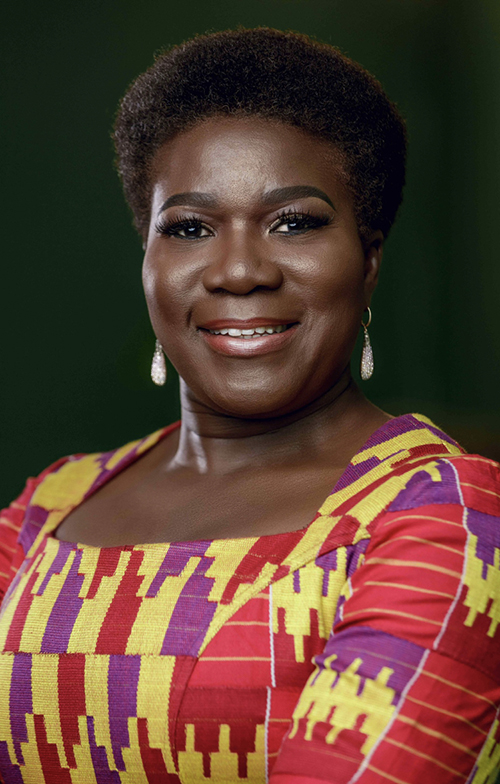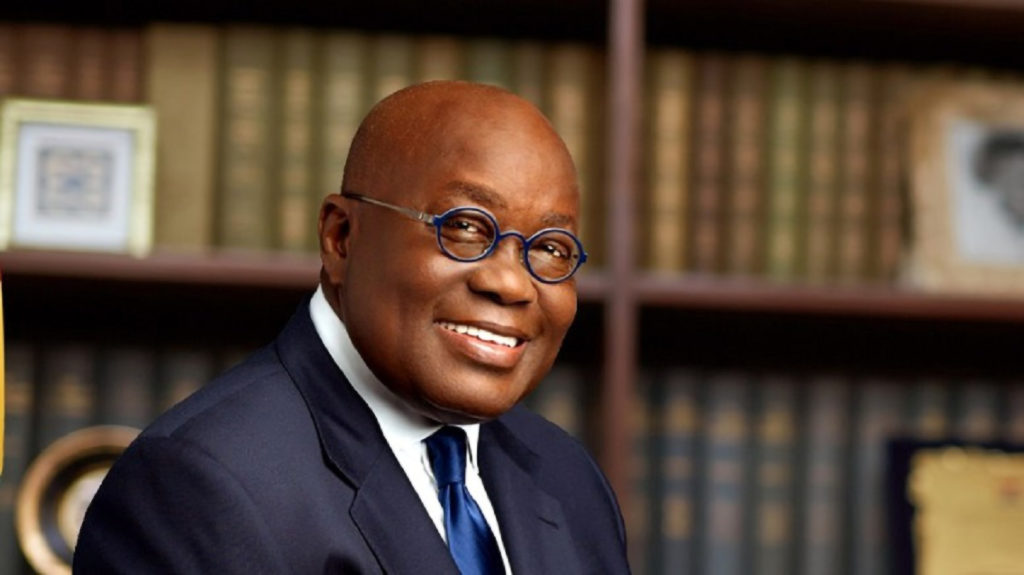1. Excellency, how would you present Ghana from an economic point of view?
Ghana has embarked on a major economic pathway hinged on industrial transformation as a major growth pole to drive sustainable development, create jobs, create wealth and bring economic emancipation, particularly to women and the teeming youth population.
Our ambition is to leverage our reputation as a peaceful nation and our credentials for good governance to support our chosen path and propel Ghana from its Middle-Income status into the ranks of the developed nations.
2. How would you describe the relations between Belgium and Ghana?
Ghana and Belgium established diplomatic relations in the 1960s with the opening of Diplomatic Missions in Brussels and Accra. The Ghana embassy in Brussels is also accredited to the European Union (E.U.) and to the Grand Duchy of Luxembourg.
In the 1980s, Belgium closed its embassy in Accra and has since overseen Belgian interests in Ghana through its embassy in Côte d’Ivoire. It is, however, hoped that Belgium will soon re-open a fully-fledged embassy in Accra, given our rapidly growing business ties and reliable direct connectivity provided by Brussels Airlines. It would also be advantageous for both countries, considering that the African Continental Free Trade Area (AfCFTA) Secretariat is based in Accra. Despite the absence of a resident Belgian Diplomatic embassy in Ghana, our diplomatic ties with Belgium have remained very cordial.
EXCHANGE OF HIGH-LEVEL VISITS
Most recently, there have been numerous high-level visits involving officials of both countries. Mr. François Xavier de Donnea, Minister-President of the Brussels Capital Region, travelled to Accra for the investiture of H.E. Nana Addo Dankwa Akufo-Addo as President of the Republic of Ghana on January 7, 2017.
Honourable Yaw Osafo Maafo, Senior Minister, led a delegation to Belgium for a six-day working visit in June 2017. The visit was to engage in an investment drive with Belgian companies in the fishing harbour construction domain. During the visit, the Senior Minister discussed the policies and programmes being implemented by the Government, which spurred the growth of Ghana’s economy and the creation of jobs.
During the 11th Edition of the European Development Days (EDD) in Brussels from 7th to 9th June 2017, His Excellency President Nana Akufo-Addo, held a meeting with the former Belgian Prime Minister, Mr. Charles Michel, to discuss various topics bordered around global security as well as the security situation in the Sahel Region.
Subsequently, Her Majesty Mathilde, Queen of the Belgians, paid a visit to Ghana in February 2018, during which she met with President Nana Addo Dankwa Akufo-Addo, her fellow Sustainable Development Goals (SDG) Advocate. The visit marked a remarkable milestone in our bilateral relations. It offered the Queen the opportunity to discuss the implementation of the SDGs with President Akufo-Addo. Her Majesty also met other Government officials to explore the possibility of extending support to Ghana in the areas of health and education. This was followed by a visit to Belgium by H.E. Mrs. Samira Bawumia, Second Lady of the Republic of Ghana, who met with Her Majesty Queen Mathilde on the sidelines of the European Development Days (EDD) on Tuesday, June 18th, 2019.
In the following year, from 22nd to 23rd October, Hon. Albert Kan-Dapaah, Minister for National Security, and Hon. Dominic Nitiwul, Minister for Defence, paid a visit to Belgium during which they met with H.E. Didier Reynders, who was then the Minister for Defence and Foreign Affairs.
Other significant high-level meetings were outlined for the year 2020. However, the spread of the COVID-19 disease hindered such plans. Suffice it to say, bilateral relations between Ghana and Belgium continue to solidify.
3. What are the key sectors in which you would advise Belgian investors to invest in Ghana?
Ghana, like the rest of the world, has three key sectors, namely:
- Services;
- Industry; and
- Agriculture.
The volume of activities in these sectors are markedly skewed towards services, followed by industry, with agriculture following a very distant third. With the priority placed on Agribusiness, Government aims to boost the Agriculture Sector through programs such as:
- Planting for Food and Jobs;
- Planting for Export and Rural Development; and
- Rearing for Food and Jobs.
Although industry places second, it is fragile because most of the available industries are small scale and the majority are not competitive and economically efficient. They will require significant inputs to modernise them. It will be helpful if Belgian technologies and innovations can be brought into supporting the industry. Even with the heavy presence of services in this structure of our economy, a significant contribution to what we have as services comes from wholesaling and retailing. However, other key sectors such as tourism, construction, health infrastructure and others, would need assistance. Belgian investors can significantly look at those areas.
Investment incentives that Ghana has for prospective investors are:
- Graduated and reasonable corporate taxes.
- Location incentives of between 25%-50% tax rebates for manufacturing companies.
- Tax holidays ranging from 5-10 years depending on the sectors.
- Custom duties exemptions for capital goods plant, machinery, equipment, and parts.
- Automatic immigrant quotas depending on paid-up capital.
4. Your embassy is the first point of contact for Belgians who are here. How do you help them?
a. The embassy provides information on tourism, culture and investment opportunities in Ghana as well as general advice on doing business in Ghana. It also provides tourists, investors and trade delegations with efficient and effective consular and legal services, including the issuing of visas. It further facilitates meetings between Belgian investors/trade missions and relevant Ministries, Departments and Agencies in Ghana.
b. Are there other agencies that it is important to be in contact with?
Besides the embassy, investors may also wish to contact other relevant agencies in Ghana, including the following:
Ghana Investment Promotion Centre (GIPC) – It is responsible for the promotion of Foreign Direct Investments (FDI) and is also the primary coordinator for all investments in Ghana.
Ghana Immigration Service (GIS) – It is the institution responsible for the issuance of the various types of permits, including work and residence permits and emergency entry visas/visa on arrival.
Registrar-General’s Department (RGD) – It is responsible for the registration of businesses in Ghana. Investors intending to do business in Ghana have to register as business entities with the RGD under the relevant laws.
Ghana Belgium Luxembourg Chamber of Commerce – It promotes trade and economic contact between Ghana and the Kingdoms of Belgium and Luxembourg.
5. Is there any message you would like to send to our members?
We commend the “Perspectives” team for its efforts in eliciting the views of various nations through their respective Missions in Belgium, which otherwise would not have been publicised. In this era of public diplomacy, your publication serves as a remarkable tool enabling these Missions to showcase their countries.
6. COVID-19: How would you describe Ghana’s fight against COVID-19? What support has been put in place for Belgian investors?
Since the beginning of Ghana’s COVID-19 outbreak, President Nana Addo Dankwa Akufo-Addo has frequently addressed the nation to update the public on the latest measures to curb the spread of the disease. On 5th April 2020, the President announced five critical objectives in Ghana’s fight against COVID-19:
- To limit and stop the importation of the virus;
- To contain the spread of the virus;
- To provide appropriate care to patients with the virus; and
- To limit the socio-economic impact of the virus.
Further to this, numerous measures were taken in line with the “Imposition of Restrictions Act 2020, Act 1012” which was passed by Parliament on 21st March 2020. These measures enabled the launch of the COVID-19 fund, public health policies, contact tracing technology, travel restrictions, the establishment of health facilities and a one billion Ghana Cedi (approx. $173,843.00) stimulus package in March 2020.
The COVID-19 Alleviation and Revitalisation of Enterprises (CARES) Programme was subsequently launched against the following background: Prior to the outbreak of COVID-19, Ghana’s economy had been forecast to grow by 6.8% in 2020, near its 7% average growth rate in 2017–2019. This performance from the beginning of 2017 was attributed to the implementation of the President’s long-term vision of Ghana Beyond Aid, a vision of using Ghana’s resources more efficiently to build a Wealthy, Inclusive, Sustainable, Empowered and Resilient Ghana within a generation. However, the outbreak of the Covid-19 pandemic, which ravaged the entire global community, including Ghana, started as a health crisis and rapidly degenerated into a global security, developmental and economic crisis.
The COVID pandemic, however, provided another opportunity for Ghana to build and remodel the objective of Ghana Beyond Aid to a Ghana that is prosperous and stands on its own feet; a Ghana that is beyond dependence on others, industrialised and established as a Regional Hub for goods and services. To this end, the Ghana COVID-19 Alleviation and Revitalisation of Enterprises Support (CARES) programme was launched in 2020. The CARES programme sets out the Government’s approach to mitigating the health and economic challenges created by COVID. It also presents concrete steps which will take over the medium term to revitalise our economy and accelerate our national transformation toward Ghana Beyond Aid.
It has been estimated that the CARES programme will cost an amount of GH¢100 billion of spending and investment inflows from 2021 to 2023. The bulk of this – at least GH¢ 70 billion– is expected to come from the private sector, both domestic and external. Government is, therefore, proactively making Ghana an attractive place for private investments.
 H.E Sena Siaw-Boateng, ambassador of the Republic of Ghana to Belgium
H.E Sena Siaw-Boateng, ambassador of the Republic of Ghana to Belgium

Nana Addo Dankwa Akufo-Addo
President of the Republic of Ghana and Commander-In-Chief of the Ghana Armed Forces
![[:fr]GHANA_1[:]](https://perspectives-cblacp.eu/wp-content/uploads/2021/04/GHANA_1-696x464.jpg)


